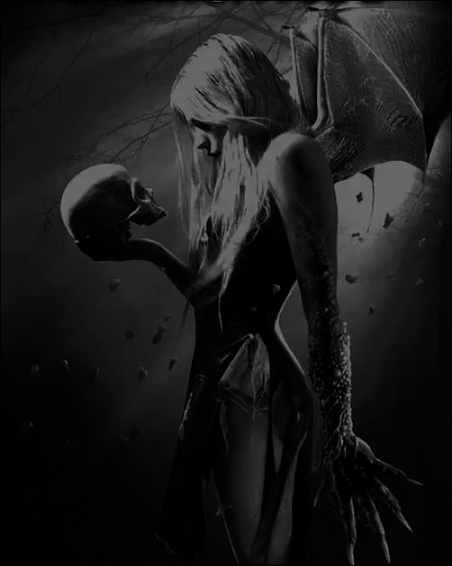One of my lease favorite composers (Arnold Schoenberg) penned these words:
“Well borrowed is well composed.”
He is indisputably right. Modern viewers almost undoubtedly prefer the Matrix to Plato’s Cave despite the fact that Plato came along much earlier than the Matrix and despite the fact that the Matrix may never have been thought up without Plato’s Cave. The same is true of dozens of popular movies, books, pop hits, and art of every kind. If an artist can borrow and idea, fuss with it for a while, and then somehow make it seem new and fresh, that artist will be lauded for being hyper-creative. The question is: are the creators of these things creative authors or artistic thieves?
That all depends on definition. Is creativity founded upon adaptation and improvement upon an existing subject or is it founded upon innovation?
Let’s take Schoenberg for an example. If you were to listen to his music, you would most likely wonder what in the world he was talking about when he said “well borrowed is well composed.” You’d be hard pressed to determine what he may have borrowed and whom he may have borrowed it from. Schoenberg wrote atonal music (he insisted on using every note in the chromatic scale once before starting a new sequence). Most people consider atonal music random screechy noises without form (although it does have form and it doesn’t have to be screechy) and it is indisputably one of the least popular styles of music of all time. Even in music colleges, you’ll find that most musicians don’t like atonal music. I don’t like atonal music … but, if I have to, I’ll I admit that out of all of his compositions that I heard in my composition and theory classes, I actually did find a couple measures that were really cool if you listened to them out of context. I often wondered whether or not they could be used as the foundation of a cool jazz piece… though I never gave any effort to find out. In short, Schoenberg’s “borrowing” was so discrete that it became something entirely new – something unrecognizable. Something so far from the original inspiration that you really wonder: is this really borrowed? Without a degree in music, you might not be able to see the connection but it is there.
A lot of modern sci-fi and fantasy work is just like that. What modern author hasn’t been influenced by certain sci-fi tropes? I don’t own a “blaster” but nearly every space hopping hero has one. If I called it a gun in my book, I’d have some explaining to do: it would have to be a gamma ray gun, an energy pistol, or some other futuristic technology. I doubt they will ever call those things anything besides a gun in the future but “blaster” is the word we expect because Star Wars solidified that detail and just “made it so.” The same is true of time travel … although the very thought of time travel makes my eyes roll. An author can simply tackle that trope in his/her own unique and innovative way or he/she can borrow from other ideas. The innovator may have to beware of dangerous waters though – if other people have considered the topic you are writing about at all, there is a high degree of likelihood that someone has considered complications that you haven’t thought of before and not addressing those complications could cause you trouble. The more you think about borrowing versus innovation, the more it seems that most creative thought is adaptive (borrowed with improvements), not innovative – although that may be difficult to see at first. For instance, when I taught philosophy in college, The Matrix was all the buzz. Young tweens thought it was a completely innovative and novel idea. In reality, it was really well borrowed. Sure, there were innovative aspects of it but if you think about those details, those were all well borrowed ideas as well. When I first saw Avatar, I thought it was very novel and new. Then, when I started looking into Cameron’s influences, I discovered that the aspects I thought were new and novel were really just well borrowed adaptations from previous authors. The same is undoubtedly true of many authors and artists. I noticed this the other day. I was reading Writes of the Future, volume 30. As I was reading the very first story, I thought: “Wow, this is a really new idea!” Although I’m not a big fan of the Ernest Hemingway-esque understated writing style copiously followed by the author, I appreciated his creative ideas … until I realized that I had used the same idea with a very different twist in Moon 514 last May when I drafted one of my biggest surprise twists of the book. Sometimes, “making an idea your own” is the whole key to making it seem innovative.
So …
when I hear authors who have “writer’s block” or artists who have empty canvas syndrome or anything like unto it, I always think to myself: why don’t they just pick up someone else’s work and let it spark their imagination? By no means would I advocate wholesale mimicry but by all means, take an idea, let it inspire you; mold it, cultivate it, remodel it, rethink it, and soon, you’ll be inspired to compose something completely new and novel.
Others will think you are innovative but you can secretly know that you just borrowed something really well.
The image comes from Creativity Central



This reminds me of the (paraphrased) statement by Newton:
I only saw farther because I was standing on the shoulders of giants who came before me.
Indeed, often those who “borrow” ideas and make them their own take them in a way more interesting direction than the originator of the idea may have ever conceived. But then again, we all know mediocre versions of an original (like the typical movie sequel).
Yes. In today’s world, publishing scouts are looking for something totally new and different, an eventuality that almost doesn’t exist. What they are really looking for is something so well borrowed and so much improved upon something that came before that the scout cannot recognize that they’ve seen it before.